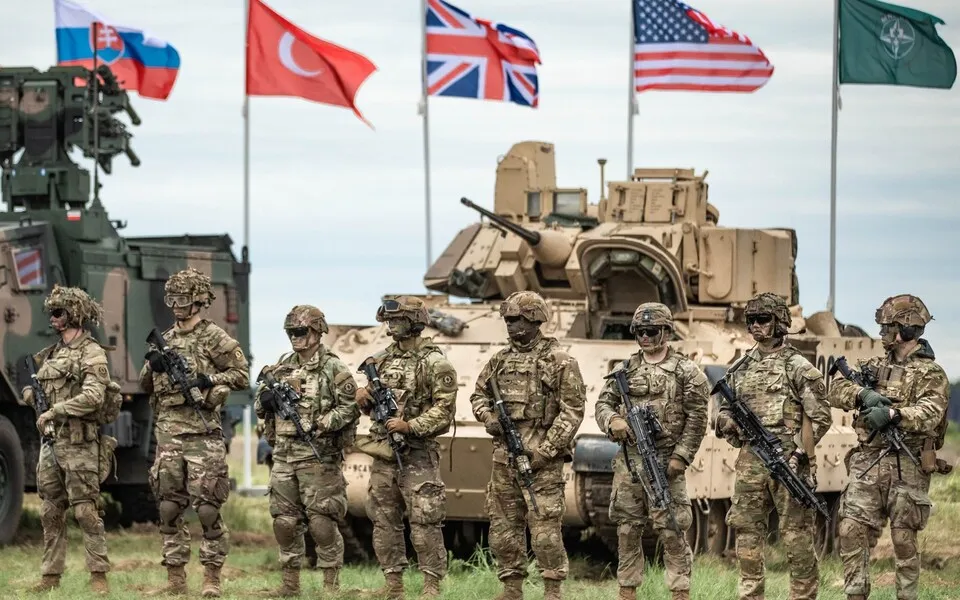
Recent statements from military leaders and defense officials across NATO member states underscore a growing concern: the possibility of Russian aggression extending beyond Ukraine’s borders, with potential targets including NATO’s eastern flank and even central Europe.
The German Perspective: A Call to Arms
Marie-Agnes Strack-Zimmermann, head of the Bundestag’s defense committee, issued a stark warning against underestimating Russian President Vladimir Putin’s ambitions. Her assertion that it would be “fatal” to dismiss the possibility of a Russian attack on Germany underscores a broader apprehension within German defense circles about the Kremlin’s unpredictability.
This sentiment is echoed by German Defense Minister Boris Pistorius and General Carsten Breuer, who both emphasize the imminent risk of conflict with Russia, suggesting a timeframe of five to eight years for potential hostilities to erupt.
NATO’s Strategic Calculations
Lieutenant General Alexander Sollfrank, in charge of NATO’s military logistics in Germany, articulated the alliance’s concern over Russian missile strikes in Europe in the event of an all-out war.
This apprehension is shared by Lieutenant Admiral Rob Bauer, Chair of the NATO Military Committee, who warns of the necessity for NATO countries to brace for the possibility of an all-out war with Russia within the next two decades.
The Estonian and Romanian Alarms
Estonia, sharing a border with Russia, has voiced particularly acute fears. Kaupo Rosin, head of Estonia’s Foreign Intelligence Service, has highlighted the potential for Russia to double its troops on the border, underscoring the need for NATO to enhance its preparedness.
Similarly, Romania’s defense chief has sounded the alarm on Russia’s unrelenting ambitions, stressing the importance of readiness for a broader conflict involving NATO.
The Belgian and Broader European Response
Admiral Michel Hofman, the Belgian Army’s Chief of Staff, has asked Europe to urgently prepare for potential Russian aggression, particularly on NATO’s eastern flank. His warnings about Russia’s shift to a war economy and the potential for new fronts in Moldova or the Baltic states resonate with the broader NATO strategy of bolstering military readiness to deter future aggression.
A Unified Call to Action
The convergence of warnings from across NATO underscores a grim reality: the threat of Russian military aggression is neither abstract nor confined to Ukraine.
The strategic implications for Europe are profound, necessitating a concerted effort to bolster defense capabilities, enhance military readiness, and maintain a robust deterrence posture. As Europe faces this critical juncture, the choices made today will shape the continent’s security landscape for decades to come. The time for complacency is over; the moment for decisive action is now.
This collective perspective from European defense leaders serves as a clarion call, urging immediate and unified action to fortify the continent’s defenses against a resurgent Russia.
References:
- Yahoo News on Marie-Agnes Strack-Zimmermann’s statement: Yahoo News
- The Times on Lt. Gen. Alexander Sollfrank’s interview: The Times
- The Telegraph on Lt. Admiral Rob Bauer’s warning: The Telegraph
- Estonian intelligence report and The Kyiv Independent on the security outlook: The Kyiv Independent, International Security and Estonia 2024
- Report: INTERNATIONAL SECURITY AND ESTONIA 2024
- Romanian defense chief’s warning via The Kyiv Independent: The Kyiv Independent
- Der Tagesspiegel on Boris Pistorius’s remarks: Der Tagesspiegel
- Welt Am Sonntag on General Carsten Breuer’s assessment: Welt Am Sonntag
- Euromaidan on Admiral Michel Hofman’s call to urgently prepare for potential Russian aggression on NATO’s eastern flank.
- 7sur7 on NATO Secretary General urges readiness for actual hostilities over the next decade





